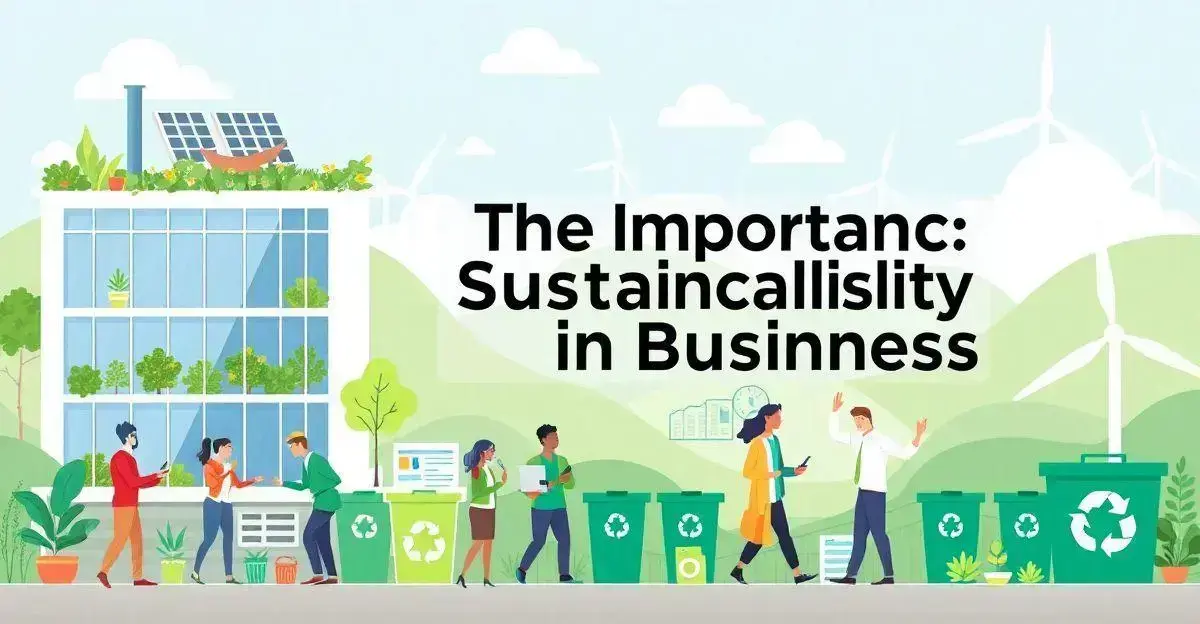Sustainable innovation is reshaping the landscape of modern business.
By integrating eco-friendly practices into their core strategies, companies can not only enhance their operational efficiency but also contribute positively to the environment.
Understanding Sustainable Innovation
Understanding sustainable innovation is crucial in today’s world. It refers to the creation and implementation of new ideas, products, or processes that meet the needs of the present without compromising future generations.Sustainable innovations often focus on reducing environmental impacts, conserving resources, and enhancing social well-being.
One key aspect is the integration of sustainability into business strategies. Companies are now recognising that by prioritising sustainable practices, they can not only benefit the planet but also drive economic growth. This can lead to increased brand loyalty and a competitive edge in the market.
Examples of sustainable innovation include renewable energy technologies, biodegradable materials, and waste reduction techniques. As more businesses adopt these solutions, they contribute to a larger movement aimed at combating climate change and fostering a more sustainable future.
Investing in sustainable innovation can also lead to significant cost savings over time. For instance, energy-efficient systems reduce utility bills, while waste minimisation strategies cut disposal costs. Thus, the transition to sustainable practices is not only an ethical choice but also a smart financial decision.
The Importance of Sustainability in Business

The importance of sustainability in business cannot be overstated. As the world faces climate change and resource depletion, companies must embrace sustainable practices to thrive.
By prioritising sustainability, businesses can reduce their ecological footprint while appealing to environmentally conscious consumers.
Integrating sustainability into business operations can lead to numerous benefits. Not only does it enhance a company’s reputation, but it also opens up new markets. For example, many customers today prefer brands that demonstrate a commitment to protecting the environment. This shift in consumer behaviour is driving businesses to innovate and develop eco-friendly products.
Furthermore, adopting sustainable practices often results in cost savings. Businesses can reduce waste, lower energy consumption, and implement efficient supply chain management. These efforts can decrease operational costs significantly.
Investors are also looking at sustainability. More funds are being directed towards companies with strong environmental, social, and governance (ESG) criteria. This means that businesses prioritising sustainability may attract more investment and improve their long-term viability.
The commitment to sustainability fosters a positive corporate culture, engaging employees who value ethical practices. In today’s job market, workers often choose employers based on their sustainability initiatives.
Cases of Successful Sustainable Innovations
Cases of successful sustainable innovations highlight the effectiveness of eco-friendly approaches in various industries. One notable example is the automotive sector, where companies have developed electric vehicles (EVs).
These vehicles produce no emissions, reducing air pollution and reliance on fossil fuels. Brands like Tesla lead the way, demonstrating that sustainable innovation can result in high-performance products.
Another example is in the food industry. Companies are adopting vertical farming to grow crops in urban areas. This approach uses less water and reduces the need for pesticides. By growing food closer to consumers, businesses can lower transportation emissions while providing fresh produce.
In the realm of packaging, many brands are transitioning to biodegradable materials. This shifts away from plastic, a significant polluter. Unilever is one brand making strides in this area, aiming for all of its packaging to be recyclable or reusable by 2025.
Companies in the energy sector are also innovating through renewable energy sources. For instance, wind and solar power have become more accessible and cost-effective. These solutions help reduce dependency on fossil fuels and contribute to cleaner energy systems.
Finally, businesses are applying sustainability in their supply chains. By sourcing materials responsibly and optimising logistics, they can minimise environmental impacts. Such thoughtful practices not only attract eco-conscious consumers but also lead to long-term savings.
Strategies for Implementing Sustainable Practices

Assess current practices: Identify areas that need improvement and how sustainable solutions can address these gaps. Conduct an audit of energy, waste, and resource utilization to highlight opportunities for sustainability.
Engage all stakeholders: Sustainability is a team effort, so getting input from employees fosters an inclusive culture. Consider setting up cross-functional teams to address specific sustainability goals.
Set measurable targets: Establish clear, achievable objectives for sustainability efforts, like reducing energy consumption by a percentage or minimizing waste. Track progress for accountability.
Training and education: Providing ongoing training about sustainable practices ensures everyone understands their importance and how to implement them with workshops and courses.
Collaborate with suppliers: Aligning values with suppliers fosters a responsible supply chain. Engage in community projects like local recycling programs.
Communicate transparently: Sharing successes and challenges encourages continuous improvement and enhances the brand’s reputation.
Challenges in Sustainable Innovation
Challenges in sustainable innovation can be significant for businesses. One major obstacle is the initial cost of implementing new technologies or processes. Companies often fear that switching to sustainable practices will be expensive and may not yield immediate financial returns. However, long-term savings from reduced energy consumption and waste can outweigh these initial costs.
Another challenge is regulatory compliance. Different regions have varying regulations regarding sustainability, which can complicate operations for businesses that operate in multiple markets. Staying updated on these laws is crucial, as non-compliance can lead to hefty fines.
Furthermore, consumer perceptions can be a double-edged sword. While many consumers favour sustainable products, some may still prioritise cost over eco-friendliness. Businesses must find ways to educate their customers about the value of sustainable innovation without alienating those focused on price.
Supply chain complexities also add to these challenges. Companies may find it difficult to source sustainable materials or work with suppliers who share their values. Building strong relationships with responsible suppliers is critical for overcoming these hurdles.
Lastly, the culture within the company plays a vital role. If leadership does not fully support sustainable initiatives, it can hinder progress. Engaging employees and stakeholders is essential to create a robust sustainability strategy that everyone believes in.
The Future of Sustainable Innovation

The future of sustainable innovation is bright and full of possibilities. As businesses strive to meet environmental challenges, they are increasingly focusing on green technologies and practices. This shift not only helps the planet but also drives economic growth.
Renewable energy sources, such as solar and wind, are becoming more accessible and affordable, enabling companies to reduce their carbon footprints.
Moreover, advancements in technology allow for smarter resource management. For example, the use of IoT devices can help monitor energy usage in real-time. This data allows businesses to optimise consumption and save costs.
Sustainable innovation also means developing products that are designed to last longer and be more efficient. Companies are increasingly considering the lifecycle of their products, from production to disposal, ensuring that they minimise waste. For example, many electronics manufacturers are focusing on creating recyclable materials and encourage users to return old products.
Additionally, the demand for transparency is growing among consumers. Businesses are embracing this trend by educating customers about their efforts in sustainability. This engagement helps build trust and loyalty.
In conclusion, the future of sustainable innovation holds immense potential for businesses willing to adapt and lead in this new era. It promises not only ecological benefits but also economic opportunities that can drive profitability and growth.
Embracing Sustainable Innovation: A Path to Growth and Leadership
Sustainable innovation is vital for businesses looking to thrive in a changing world. By adopting eco-friendly practices, companies can reduce their impact on the planet while unlocking new opportunities for growth.
Through successful examples across various industries, it is clear that sustainable practices not only benefit the environment but also enhance profitability. As we move forward, embracing sustainable innovations will position businesses as leaders in their fields.
Moreover, by facing and overcoming challenges, companies can evolve and adapt to the demands of an eco-conscious marketplace.
In summary, prioritising sustainability is not just an ethical choice; it is a smart business strategy that can pave the way for a more sustainable future.
